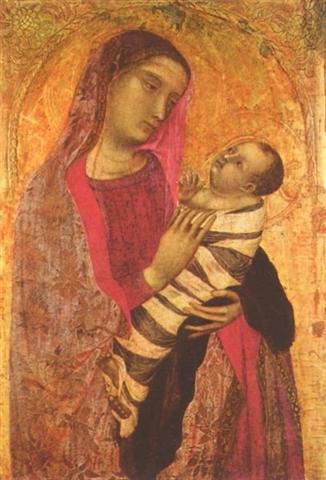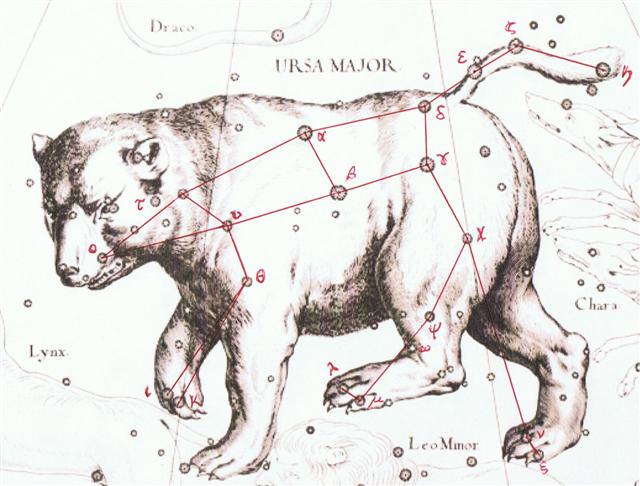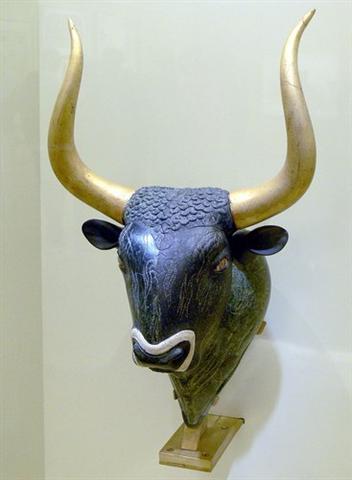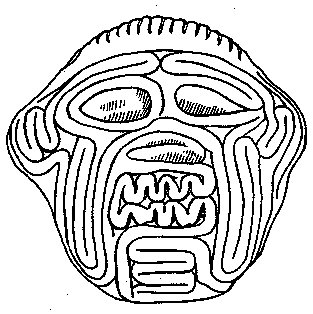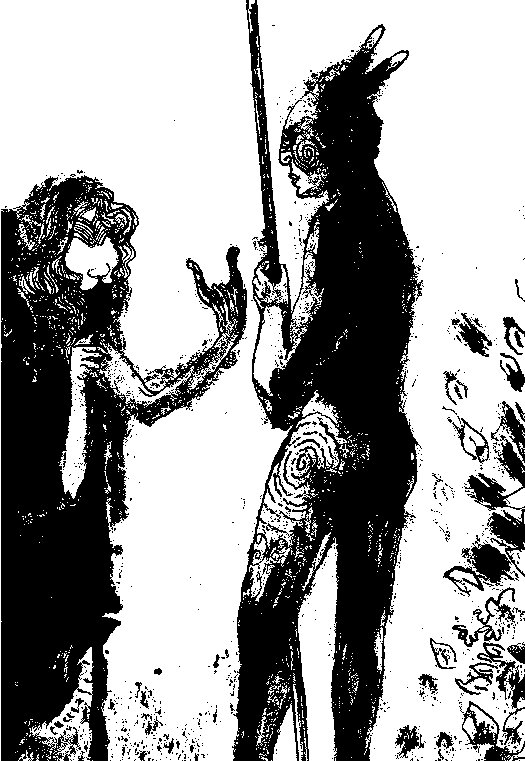Ba4.2 Down below I have described the beginning of text line Ba4, and the sitting figures - variants of the very common kai type of glyph - seems to be a characteristic of this period:
Ba4-14 (→ Bharani, *41.4) suggests the double formula 14 * 29½ + 1 = 414 = 314 + 100, i.e.one more, presumably a little child (tama-iti) in front.
... Presented the drink to quaff, he refused it, saying that he was ill; but urged to taste it from the tip of his finger, he did so and was immediately overpowered by its magic. He lifted the bowl and was drunk. He sent for Quetzalpetlatl, his sister, who dwelt on the Mountain Nonoalco. She came, and her brother gave her the bowl, so that she too was drunk. And with all reason forgotten, the two that night neither said prayers nor went to the bath, but sank asleep together on the floor. And in the morning Quetzalcoatl said, in shame, 'I have sinned; the stain of my name cannot be erased. I am not fit to rule this people. Let them build a habitation for me deep under the ground; let them bury my bright treasures in the earth; let them throw the glowing gold and shining stones into the Precious Waters where I take my nightly bath. And all this was done. The king remained four days in his underground tomb, and when he came forth he wept and told his people that the time had come for his departure to the Red Land, the Dark Land, the Land of Fire ... Notably Ba4-2 together with the earlier Ba3-13 seem to outline some kind of period. 4 + 25 = 29:
Similarly, we can recognize the peculiar Ba4-7 as a reflection from the earlier Ba3-18:
Such non-standard glyphs repeated slightly altered after a while were presumably refererring to the positions of pairs of significant stars. And we may have to look over more than a single glyph line in order to find them. Furthermore, the example of Phekda (γ Ursae Majoris) and Heze (ζ Virginis) suggests a 'change of sex':
... Phacd, and Phachd, Phad, Phaed, Phaecda, Phekda, and Phegda, are all from Al Faĥdh, the Thigh, where this star is located in the figure. Al Bīrūnī said that it was Palastya, one of the Hindu Seven Sages. The Chinese knew it as Ke Seuen Ke, and as Tien Ke, another Armillary Sphere ...
... Ishtar, scorned, goes up to heaven in a rage, and extracts from Anu the promise that he will send down the Bull of Heaven to avenge her. The Bull descends, awesome to behold. With his first snort he downs a hundred warriors. But the two heroes tackle him. Enkidu takes hold of him by the tail, so that Gilgamesh as espada can come in between the horns for the kill. The artisans of the town admire the size of those horns: 'thirty pounds was their content of lapis lazuli'.
(Lapis lazuli is the color sacred to Styx, as we have seen. In Mexico it is turquoise.) Ishtar appears on the walls of Uruk and curses the two heroes who have shamed her, but Enkidu tears out the right thigh of the Bull of Heaven and flings it in her face, amidst brutal taunts. It seems to be part of established procedure in those circles. Susanowo did the same to the sun-goddess Amaterasu, and so did Odin the Wild Hunter to the man who stymied him. A scene of popular triumph and rejoicings follows. But the gods have decided that Enkidu must die, and he is warned by a somber dream after he falls sick. The composition of the epic has been hitherto uncouth and repetitious and, although it remains repetitious, it becomes poetry here. The despair and terror of Gilgamesh at watching the death of his friend is a more searing scene than Prince Gautama's 'discovery' of mortality. 'Hearken unto me, O elders, (and give ear) unto me! // It is for Enk(idu), my friend, that I weep, // Crying bitterly like unto a wailing woman // (My friend), my (younger broth)er (?), who chased // the wild ass of the open country (and) the panther of the steppe. // Who seized and (killed) the bull of heaven; // Who overthrew Humbaba, that (dwelt) in the (cedar) forest - !
// Now what sleep is this that has taken hold of (thee)? // Thou hast become dark and canst not hear (me)'. // But he does not lift (his eyes). // He touched his heart, but it did not beat. // Then he veiled (his) friend like a bride (...) // He lifted his voice like a lion // Like a lioness robbed of (her) whelps ... 'When I die, shall I not be like unto Enkidu? // Sorrow has entered my heart // I am afraid of death and roam over the desert ... // (Him the fate of mankind has overtaken) // Six days and seven nights I wept over him // Until the worm fell on his face. // How can I be silent? How can I be quiet? // My friend, whom I loved, has turned to clay' ... On Tahiti the name given to Phekda was the Pillar of Exit (Ana-iva, the 9th pillar). Iva. Nine. P Mgv., Mq., Ta.: iva, id. Churchill. Phekda was right across from Dubhe (α). ... Dubb, more generally Dubhe, the Bear, is the abbreviation of the Arabians' Thahr al Dubb al Akbar, the Back of the Greater Bear, Dubb being first found in the Alfonsine Tables. Al Bīrūnī said that it was the Hindu Kratu, the Rishi or Sage. Lockyer asserts that it was Āk, the Eye, i.e. the prominent one of the constellation, utilized in the alignment of the walls of the temple of Hathor of Denderah, and the orientation point of that structure perhaps before 5000 B.C.; at all events, before the Thigh became circumpolar, about 4000 B.C. This was in the times of the Hor-she-shu, the worshipers of Horus, before the reign of Mena, when the star had a declination of over 64°, - now about 62° 24'. Mena, Menes, or Min was the first historic king of Egypt, his date being variously given from 5867 B.C. to 3892 B.C., Flinders Petrie making it, from astronomical data, 4777 B.C. And he finds two other temples also so oriented. As typifying a goddess of Egypt, it was Bast Isis and Taurt Isis. The Chinese know it as Tien Choo, Heaven's Pivot, and as Kow Ching ... On Hawaii a swelling or protuberance on the thigh was hula (as in hula-hula dancing): Hura.1. To fish with a small funnel-shaped net tied to the end of a pole. This fishing is done from the shore; fishing with the same net, but swimming, is called tukutuku. 2. To be active, to get moving when working: ka hura, ka aga! come on, get moving! to work! 3. Tagata gutu hura, a flatterer, a flirt, a funny person, a witty person. Hurahura, to dance, to swing. Vanaga. 1. Sling. In his brilliant study of the distribution of the sling in the Pacific tracts, Captain Friederici makes this note (Beiträge zur Völker- und Sprachenkunde von Deutsch-Neuguinea, page 115b): 'Such, though somewhat modified, is the case in Rapanui, Easter Island. The testimony of all the reporters who have had dealings with these people is unanimous that stones of two to three pounds weight, frequently sharp chunks of obsidian, were thrown by the hand; no one mentions the use of slings. Yet Roussel includes this weapon in his vocabulary and calls it hura. In my opinion this word can be derived only from the Mangareva verb kohura, to throw a stone or a lance. So far as we know Rapanui has received its population in part by way of Mangareva.' To this note should be added the citation of kirikiri ueue as exhibiting this particular use of ueue in which the general sense is the transitive shake. 2. Fife, whistle, drum, trumpet, to play; hurahura, whistle. P Mq.: hurahura, dance, divertissement, to skip. Ta.: hura, to leap for joy. Pau.: hura-viru, well disposed. Churchill. H. Hula, a swelling, a protuberance under the arm or on the thigh. Churchill 2. And presumably it was at Heze mortality was brough to men: ... And now, they learned, it was Maui's idea to enter her very body. He proposed to pass through the womb of Great Hine the Night, and come out by her mouth. If he succeeded, death would no longer have the last word with regard to man; or so his mother had told him long ago. This, then, was to be the greatest of all his exploits. Maui, who once had travelled eastward to the very edge of the pit where the sun rose, and southward over the great Ocean of Kiwa to where he fished up land, and all the way to the dwelling-place of Mahuika - Maui now proposed a journey to defy great Hine in the west. Taking his enchanted weapon, the sacred jawbone of Muri ranga whenua, he twisted its strings around his waist. Then he went into the house and threw off his clothes, and the skin on his hips and thighs was as handsome as the skin of a mackerel, with the tattoed scrolls that had been carved there with the chisel of Uetonga. And off they went, with the birds twittering in their excitement. When they arrived at the place where Hine nui lay asleep with her legs apart and they could see those flints that were set between her thighs, Maui said to his companions: 'Now, my little friends, when you see me crawl into the body of this old chieftainess, whatever you do, do not laugh. When I have passed right through her and am coming out of her mouth, then you can laugh if you want to. But not until then, whatever you do.' His friends twittered and fluttered about him and flew in his way. 'O sir', they cried, 'you will be killed if you go in there.' 'No', said Maui, holding up his enchanted jawbone. 'I shall not - unless you spoil it. She is asleep now. If you start laughing as soon as I cross the threshold, you will wake her up, and she will certainly kill me at once. But if you can keep quiet until I am on the point of coming out, I shall live and Hine nui will die, and men will live thereafter for as long as they wish.' So his friends moved out of his way. 'Go on in then, brave Maui', they said, 'but do take care of yourself' ...
|
||||||||||||||||||||||||||||||||||||||||||||||||||||||||||||||||||||||||||||||||||||||||||||||||||||||||||||||||||||||||||||||||||||||||||||||||||||||||||||||
























